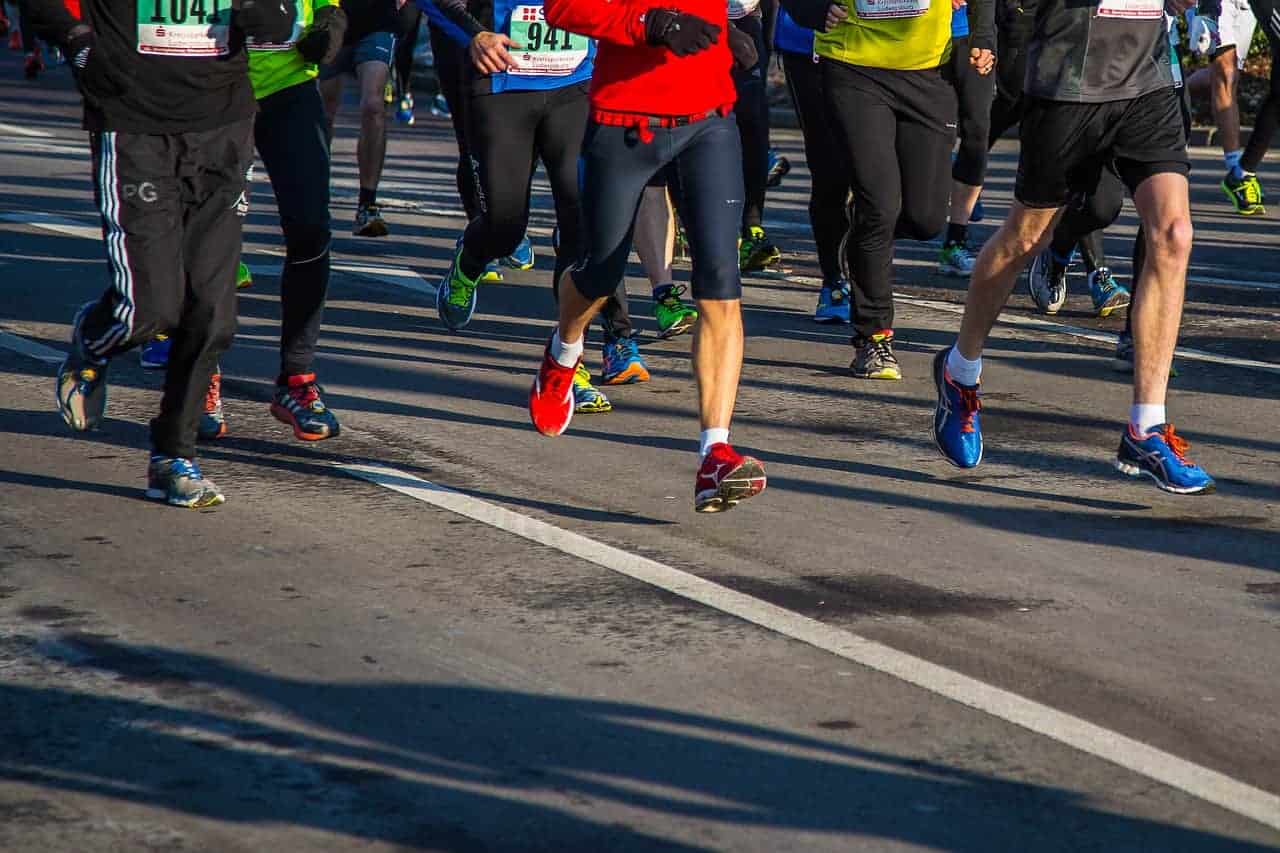Tag: Long Distance Running
There is no denying that a marathon is an extraordinarily long distance to run and the effects it has on the body can be enormous.
No part of the body is more affected than your feet.
From the intense training regime to the 26.2 miles of constant pounding on hard concrete, it is crucial you look after your feet before and after the London Marathon.
There are many injuries that can be picked up whilst training such as blisters, callus build-up, cracks in the heal and ingrown toenails. Vigorous long-distance running can amplify these injuries but also cause nail damage and even loss of a toenail.
Caring for your feet post marathon is extremely important and visiting a podiatrist is advised to reduce the possibility of long-term damage which could be irreversible.
The key to post-race recovery starts with putting your feet up, relax them with some rest and then think about booking a podiatrist appointment roughly 3 days after your marathon. This will allow any soft tissue that has become inflamed to reduce.
If you have nail damage:
It is important that any pain caused by nail damage be investigated by a podiatrist, this could be from a loose nail to a build-up of pressure from a blood blister under the nail. Following trauma never force the removal of a nail or attempt ‘home-surgery’ as you are likely to create a nail bed infection and increase the risk of causing more long-term damage – leave this to a podiatrist.
If the nail damage isn’t significant nor causing any pain, you can protect it to reduce any further damage and monitor it’s healing. If the area doesn’t heal or begins to become painful it is advisable to book in with a podiatrist for medical help.
If you have excessive swelling and bruising:
These two symptoms can be a key indicator of a fracture, even in the absence of noticeable pain.
In some cases, adrenaline from running the marathon can conceal the pain caused by the fracture and the runner will push on and either ignore the warning signs or simply not register the pain. If swelling occurs for a prolonged period of time or a new bruise develops up to a couple of days post marathon, it is recommended that you seek advice from a podiatrist or visit a GP.
Post race foot care is an extremely important part of your post-race aftercare and will speed up your recovery time and in turn, will mean you can begin training for your next marathon quicker and with healthy feet.
If you would like to incorporate a podiatry appointment into your marathon training or book in for a post-marathon foot care appointment, you can book an appointment online.
Massages are known to reduce stress and help you relax but they are often overlooked as part of an extensive exercise recovery plan. Not only are they important throughout marathon training programmes but are an essential part of recovery.
Recovering from a marathon is a critical component to a perfect training plan that runners often neglect. Post marathon massages are known to prevent injury, help repair injured muscle tissue and decrease recovery time to help you get back to your training regime quicker. Unfortunately, if you don’t properly recover from a marathon, it will be harder to break your PR and stay healthy.
It doesn’t matter if you’re a professional runner or if it’s your first marathon, the impact of running such a distance has undoubtedly put your body under enormous stress and physical duress.
The most obvious physical impacts are muscle soreness and fatigue which cause damage. It will take your muscles approximately 2 weeks post marathon to return to full strength.
It is essential for marathon runners to have considered a 2-3 week marathon recovery protocol that focuses on rest and rejuvenation and we’d recommend 2 sports massages within that time frame to assist recovery.
It is never recommended to have a massage on the day of a marathon or the day after as your body firstly needs to rest and heal the muscular damage and correct any inflammation.
We’d recommend…
Day 1 – 3 Post Marathon
A light massage or using a roller massage stick to help loosen and stretch your muscles from any delayed muscle soreness. A deep tissue massage isn’t recommended just yet.
Day 4 – 7 Post Marathon
You should consider booking in a deep tissue sports massage. Point out any areas that are really bothering you and use massage to help prevent injuries. Your osteopath can also help identify any injuries you may have and the best action to recovery.
- Effects and benefits of sports massage
- Pumps blood and fluids around the body.
- Helps stretch muscles and improve elasticity.
- Helps get rid of lactic acid build up.
- Breaks down scar tissue.
- Reduces pain.
- Relaxes muscles, body and mind.
- Can help reduce anxiety.
Combining recovery massages with a good diet and plenty of water will help you recover much more quickly.
If you would like to incorporate recovery massages into your marathon training or book in for a post-marathon massage, you can book an osteopathy appointment online. Learn more about our osteopathy services here.




